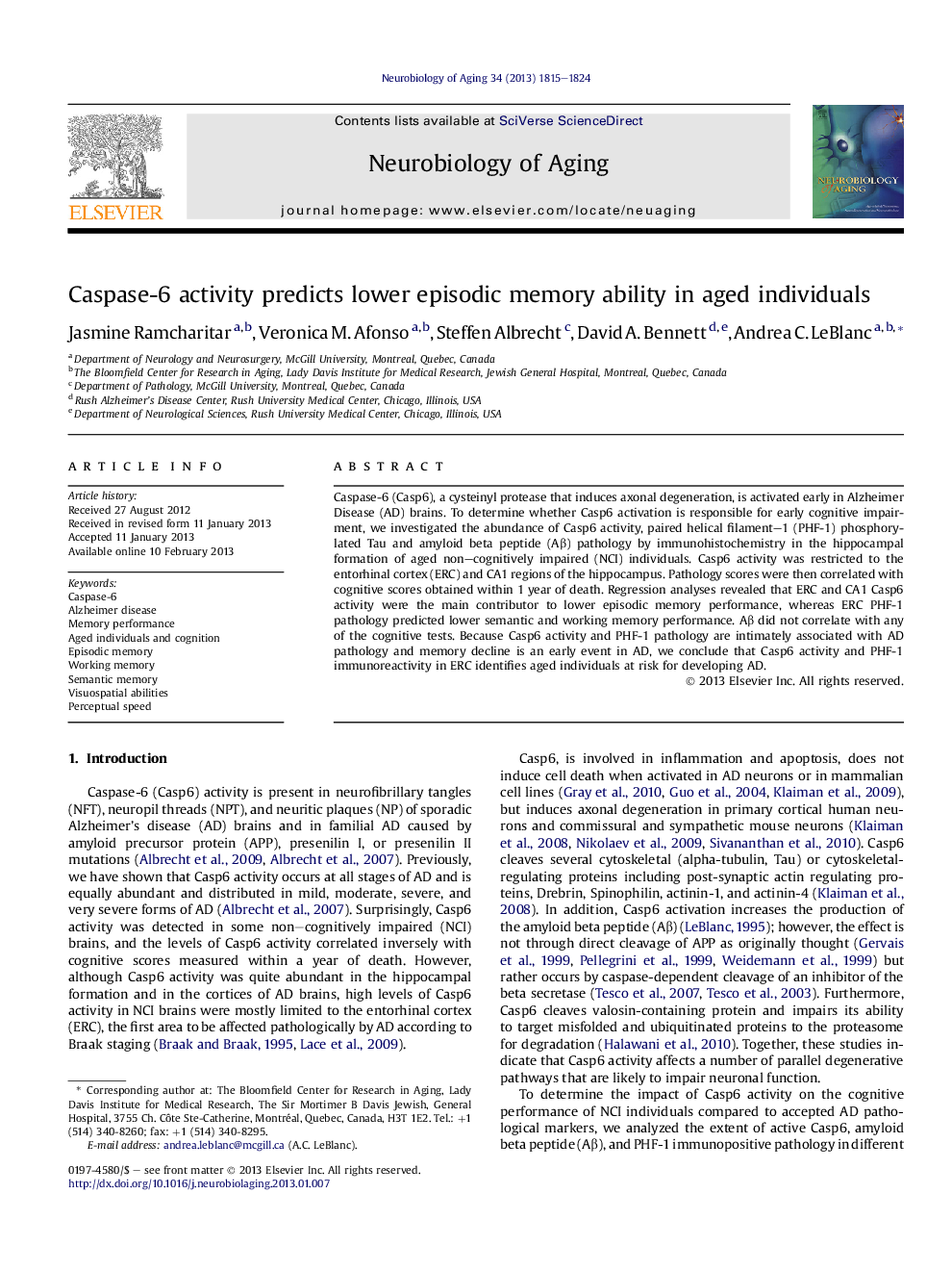| Article ID | Journal | Published Year | Pages | File Type |
|---|---|---|---|---|
| 6807296 | Neurobiology of Aging | 2013 | 10 Pages |
Abstract
Caspase-6 (Casp6), a cysteinyl protease that induces axonal degeneration, is activated early in Alzheimer Disease (AD) brains. To determine whether Casp6 activation is responsible for early cognitive impairment, we investigated the abundance of Casp6 activity, paired helical filament-1 (PHF-1) phosphorylated Tau and amyloid beta peptide (Aβ) pathology by immunohistochemistry in the hippocampal formation of aged non-cognitively impaired (NCI) individuals. Casp6 activity was restricted to the entorhinal cortex (ERC) and CA1 regions of the hippocampus. Pathology scores were then correlated with cognitive scores obtained within 1 year of death. Regression analyses revealed that ERC and CA1 Casp6 activity were the main contributor to lower episodic memory performance, whereas ERC PHF-1 pathology predicted lower semantic and working memory performance. Aβ did not correlate with any of the cognitive tests. Because Casp6 activity and PHF-1 pathology are intimately associated with AD pathology and memory decline is an early event in AD, we conclude that Casp6 activity and PHF-1 immunoreactivity in ERC identifies aged individuals at risk for developing AD.
Keywords
Related Topics
Life Sciences
Biochemistry, Genetics and Molecular Biology
Ageing
Authors
Jasmine Ramcharitar, Veronica M. Afonso, Steffen Albrecht, David A. Bennett, Andrea C. LeBlanc,
